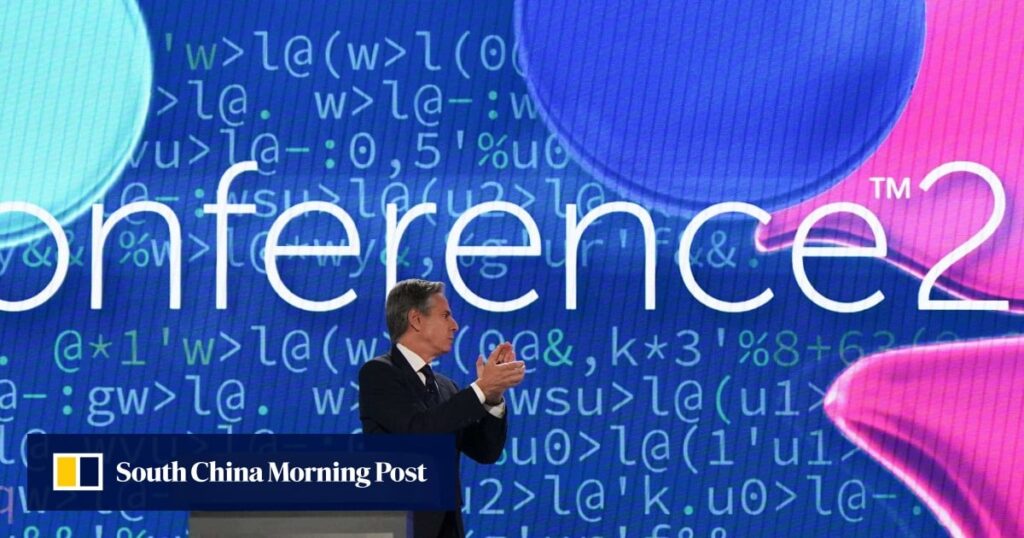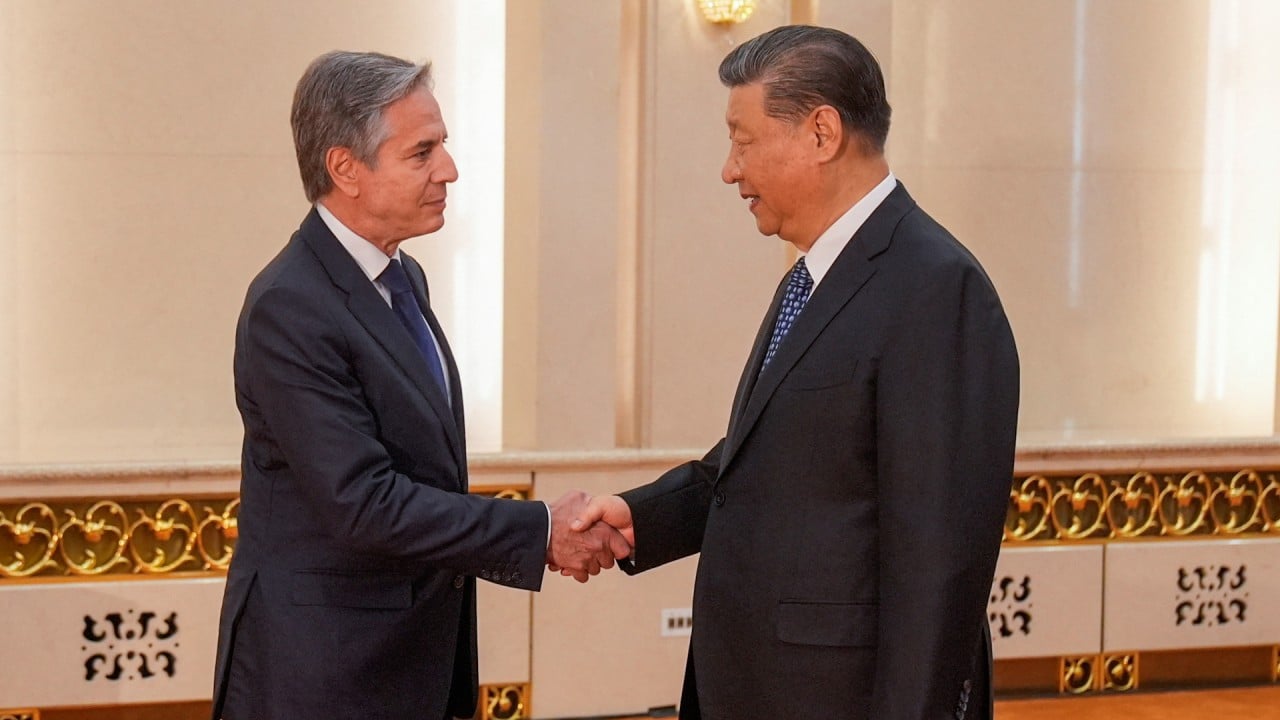He said the United States is actively working on “digital solidarity” rather than “digital sovereignty,” meaning helping other countries build capacity and guiding engagement in technology diplomacy.
Blinken said one of the goals of the strategy is to enhance the United States' role in countering global cyber threats and strengthening governance in the regulation of advanced technologies such as AI.
“We are leveraging technology to improve not only our own people and friends, but all of humanity…Some of our strategic rivals are working toward very different goals,” Blinken said. He did not mention his name, but said:
“They use digital technology and genomic data collection to monitor populations and repress human rights, weaponize their dominance and critical supply chains to coerce other governments, and use AI-based tools to polarize “It is deepening the crisis and weakening democracy,” he said.
Blinken's reference to genomic data collection reflects accusations by the US government and some human rights groups that the Chinese government uses the practice as a form of control and surveillance of ethnic minorities in Xinjiang and Tibet. There is. The Chinese government denies the allegations.
In one of only two direct references to China, Blinken said the United States would “work with partners to improve cyber norms, including publicly accusing China of targeting U.S. critical infrastructure.” “We have set this and we are adhering to it around the world.''
In February, US President Joe Biden announced cybersecurity measures for shipping ships and ports after US authorities warned that the Chinese government could remotely control Chinese-made cranes and disrupt the flow of goods. Signed an executive order to strengthen the situation.
In another apparent reference to China, Blinken said the U.S. and its allies should “act quickly to take advantage of the benefits and protect against the risks” of quantum computing and that “competitors will not be able to develop their machines.” “We need to make sure we don't fall behind as we pump in funding,” he said. It has capabilities that exceed even the most powerful supercomputers. ”
Chinese government promotes China-led Digital Silk Road initiative at Xi'an Forum
Chinese government promotes China-led Digital Silk Road initiative at Xi'an Forum
“We have learned from our experience with 5G that we cannot become complacent and allow strategic competitors to dominate the technology that forms the backbone of the global economy and determines where and how information flows,” he said. ” he said.
Chinese authorities have reiterated the need for technological breakthroughs in various high-tech fields, including quantum computing and graphics processing equipment, as part of the Chinese government's latest efforts to control the “industries of the future” .
The US government's strategy involves expanding US-led efforts to counter China's advances in emerging technologies such as AI, 5G, and quantum computing, with China's global technology dissemination through initiatives such as the “Digital Silk Road.” This is part of the
In 2021, the United States and the European Union announced a Trade and Technology Council aimed at strengthening member countries' strategic technology supply chains and reducing their shared dependence on Chinese manufacturing.
China emphasizes data and 'Digital Silk Road' in new plan to boost innovation
China emphasizes data and 'Digital Silk Road' in new plan to boost innovation
In his only remarks Monday that directly addressed the Chinese government, Blinken noted that 80 percent of critical minerals are processed in China.
He also noted that the United States “currently leads the world in areas such as cloud computing and data storage, but providers from authoritarian countries are becoming increasingly competitive.”
“It is important to work with trusted vendors and remove untrusted ones from the ecosystem. And that is only possible if you establish economies of scale with your partners and unlock the competitive advantage of each.” Blinken said.



